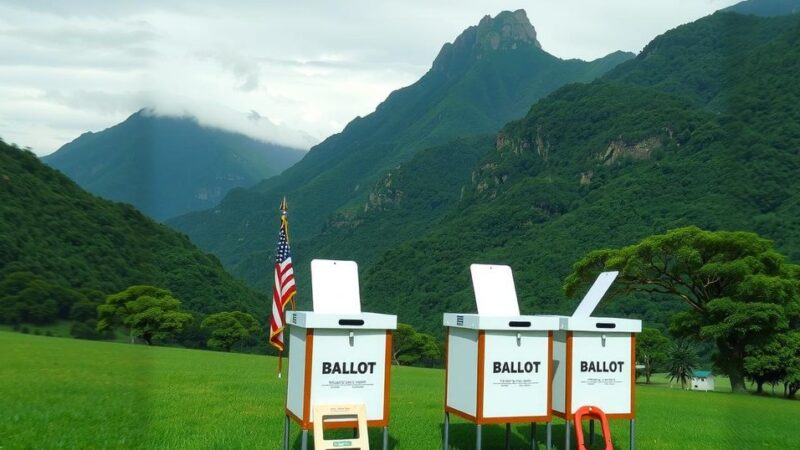Colombia is in crisis as four cabinet ministers resign from President Petro’s government, signaling challenges to his administration’s legitimacy and agenda. The significant departures come amid Petro’s leadership style being scrutinized as counterproductive, especially in the wake of failed economic and security measures. As political dynamics evolve ahead of the 2026 election, the prospects for the new pink tide face increasing uncertainty.
Colombia is currently facing a political crisis with four high-profile ministers resigning from President Gustavo Petro’s cabinet in the past two weeks. Though cabinet turnover is common under his administration, the significant nature of these recent departures raises concerns about Petro’s domestic support and future legacy. This crisis reflects deeper issues within Petro’s government, especially in the context of the renewed wave of left-wing leaders—termed the new pink tide—across Latin America, who were expected to unify against the right.
President Petro, who took office in 2022, symbolizes this new pink tide, aiming to rectify the past failures of leftist governments marked by corruption and economic challenges. He proposed ambitious initiatives aimed at diversifying the economy, improving security policies, and advancing gender-related foreign policies. Despite these initiatives, Petro’s erratic leadership style has hindered collaboration with his ministers and private industries, complicating efforts to attract ecological investments.
The recent turmoil began when Petro appointed Armando Benedetti, a controversial figure accused of corruption, as chief of staff, contrary to his advisers’ warnings. Following a broadcasted cabinet meeting in which he criticized his ministers, Petro unexpectedly demanded their resignations before embarking on a diplomatic trip to the Middle East. This leadership shakeup comes at a time when Colombia is grappling with escalating violence, particularly in relation to its guerrilla groups, further undermining the administration’s objectives.
The departure of key ministers, including those overseeing defense and environmental issues, raises alarms regarding Petro’s ability to maintain his policy objectives aimed at environmental protection and security enhancement. As political observers note, this reflects Petro’s divergence from the new left’s principles regarding environmental sustainability and gender equity. Colombia’s next presidential election in 2026 looms, with a right-wing candidate currently leading in early polling metrics.
In related developments, Ecuador held its first round of presidential elections, and nations like Brazil and Colombia prepare for their Carnival celebrations. Additionally, a controversial decision by former U.S. President Trump to temporarily suspend enforcement against foreign bribery drew notable reactions across Latin America, further complicating diplomatic and trade relations. Colombia has also witnessed the upcoming National Marimba Day celebrations, emphasizing cultural heritage while echoing broader socio-political themes across the region.
In conclusion, Colombia’s political climate remains precarious as President Pedro faces significant resignations from his cabinet, challenging the legitimacy of his administration. The ongoing crisis amid a backdrop of disappointing security outcomes and shifting public support hints at a potentially difficult road ahead for the left in Latin America, as the forthcoming election approaches. Maintaining cohesion and public trust will be vital for the leftist leaders navigating these complexities.
Original Source: foreignpolicy.com






